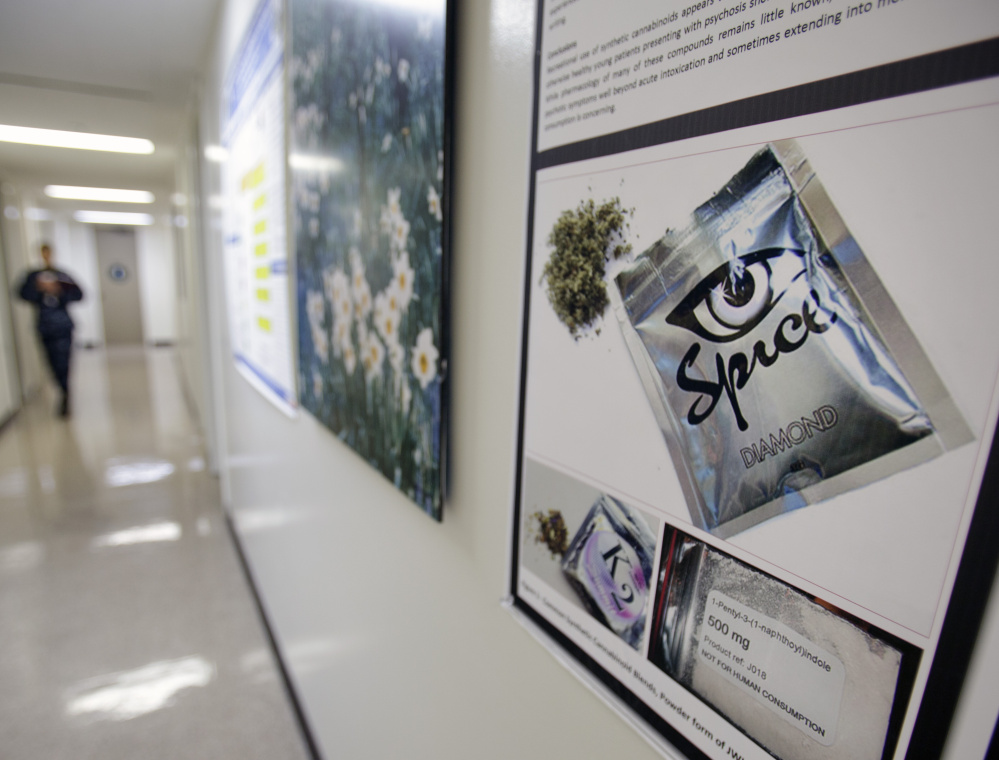WASHINGTON — Lawmakers are trying to draw attention to a rapidly emerging overdose crisis caused by synthetic drugs, less than two months after a bill to combat prescription opioid and heroin abuse was signed into law.
The opioid measure included provisions that make it easier for the government to prosecute drug traffickers, but synthetic drugs pose a different kind of challenge that wasn’t addressed in the legislation. While most drugs are on a list of controlled substances, synthetics can escape law enforcement scrutiny if the chemists who make them tweak their formulas slightly.
According to a recent study from the Centers for Disease Control and Prevention, fentanyl, a synthetic opioid up to 100 times more powerful than morphine, was responsible for more than 5,000 deaths in 2014 – up from around 1,000 a year earlier. Fentanyl used for medicinal purposes was responsible for some of those deaths, but the CDC attributed most of that increase to illicitly manufactured drugs. The singer Prince, who suffered from hip pain, died in April from what Minnesota officials said was an accidental overdose of self-administered fentanyl.
K2 has seen a sudden resurgence in Portland, Maine, in the last few months, according to police and health officials, in large part because of simple economics: The drug is abundant – people can buy it online in bulk from unregulated websites – and it’s cheap – $10 for a packet of spice that might yield two to three joints. Its users are mostly the downtrodden – homeless or transient men and women who have nowhere else to go and little hope that their situation is going to change.
In Congress, lawmakers have introduced numerous legislative proposals to address this challenge, but those likely to have the greatest short-term impact might also face the most opposition. That’s because drugs like fentanyl have legitimate medical uses as a painkiller, and there is a fear that tighter controls on these drugs could hinder pharmaceutical research.
For now, the focus has been on stopping the drugs from entering the United States. Many of the illegally synthesized drugs are coming in from China, a problem that Republican Sen. Patrick J. Toomey of Pennsylvania highlighted in a May letter to Secretary of State John Kerry.
“China’s lax regulatory controls have enabled unscrupulous chemists and drug cartels to manufacture and export deadly fentanyl-like products into our country,” Toomey said in a statement last week.
During President Obama’s visit to China earlier this month, Beijing agreed to target U.S.-bound exports of substances that are legal in China but illegal here. The White House did not specify all of the substances that China agreed to target, but a spokesman said fentanyl and its derivatives will be a focus.
The quickest short-term fix would be to add new synthetics to the list of controlled substances, which Congress itself can do. A Senate bill from Judiciary Chairman Charles E. Grassley of Iowa would add 22 drugs to the list. A bill in the House from GOP Rep. Charlie Dent of Pennsylvania would add around 300.
Send questions/comments to the editors.



Success. Please wait for the page to reload. If the page does not reload within 5 seconds, please refresh the page.
Enter your email and password to access comments.
Hi, to comment on stories you must . This profile is in addition to your subscription and website login.
Already have a commenting profile? .
Invalid username/password.
Please check your email to confirm and complete your registration.
Only subscribers are eligible to post comments. Please subscribe or login first for digital access. Here’s why.
Use the form below to reset your password. When you've submitted your account email, we will send an email with a reset code.